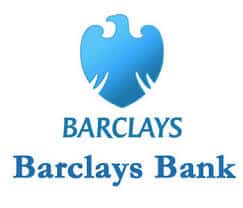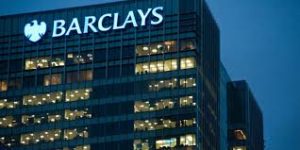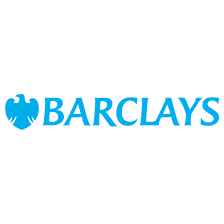Barclays Bank can trace its roots as far back as 1690 when John Freame and Thomas Gould began trading as goldsmith bankers in London. The name “Barclays” began to be used in 1736 when Freame’s son-in-law, James Barclay, became a partner.
In the early 1900s, Barclays began acquiring small English banks. The company expanded even further when it acquired the British Linen Bank in 1919.
In 1941 during the German occupation of France, one branch in Paris, headed by Marcel Cheradame, worked directly with the invading force. Senior officials at the bank volunteered the names of Jewish employees as well as ceding an estimated 100 Jewish bank accounts to the German occupiers.
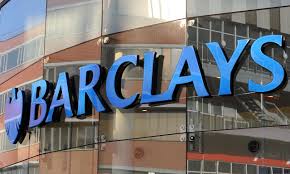 In 1980, Barclays Bank went international and expanded its business to include commercial credit and took over American Credit Corporation, renaming it Barclays American Corporation.
In 1980, Barclays Bank went international and expanded its business to include commercial credit and took over American Credit Corporation, renaming it Barclays American Corporation.
In 2001, Barclays closed 171 branches in the UK, most of them in rural communities. In 2003, the company acquired Banco Zaragozano. In 2006, Barclays purchased the HomEq Servicing Corporation for US$469 million in cash from Wachovia Corporation.
In August 2015 it was announced that Barclays would become the first UK high street bank to start accepting bitcoin. The company revealed plans which would allow users to make charitable donations using the virtual currency.
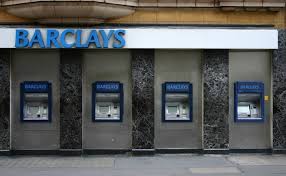 n 1998, Barclays Bank agreed to pay $3.6m to Jews whose assets were seized from French branches of the British-based bank during World War II.
n 1998, Barclays Bank agreed to pay $3.6m to Jews whose assets were seized from French branches of the British-based bank during World War II.
The CMA recently directed Barclays to stop selling banned banking services and practices that it agreed to back in 2002.
Barclays Bank has operations in nearly every country in the world. Barclays has a primary listing on the London Stock Exchange and it has a secondary listing on the New York Stock Exchange. Qatar Holdings, an investment vehicle of the State of Qatar, is the largest shareholder of the company.
Headquarters remain in London, UK. According to a 2011 paper by Vitali et al., Barclays was the most powerful transnational corporation in terms of ownership and therefore has control over global financial stability and marketplace competition.
Barclays Bank
Barclays Bank can trace its roots as far back as 1690 when John Freame and Thomas Gould began trading as goldsmith bankers in London. The name “Barclays” began to be used in 1736 when Freame’s son-in-law, James Barclay, became a partner.
In the early 1900s, Barclays began acquiring small English banks. The company expanded even further when it acquired the British Linen Bank in 1919.
History
In 1941 during the German occupation of France, one branch in Paris, headed by Marcel Cheradame, worked directly with the invading force. Senior officials at the bank volunteered the names of Jewish employees as well as ceding an estimated 100 Jewish bank accounts to the German occupiers.
 In 1980, Barclays Bank went international and expanded its business to include commercial credit and took over American Credit Corporation, renaming it Barclays American Corporation.
In 1980, Barclays Bank went international and expanded its business to include commercial credit and took over American Credit Corporation, renaming it Barclays American Corporation.
In 2001, Barclays closed 171 branches in the UK, most of them in rural communities. In 2003, the company acquired Banco Zaragozano. In 2006, Barclays purchased the HomEq Servicing Corporation for US$469 million in cash from Wachovia Corporation.
In August 2015 it was announced that Barclays would become the first UK high street bank to start accepting bitcoin. The company revealed plans which would allow users to make charitable donations using the virtual currency.
 n 1998, Barclays Bank agreed to pay $3.6m to Jews whose assets were seized from French branches of the British-based bank during World War II.
n 1998, Barclays Bank agreed to pay $3.6m to Jews whose assets were seized from French branches of the British-based bank during World War II.
The CMA recently directed Barclays to stop selling banned banking services and practices that it agreed to back in 2002.
Barclays Bank has operations in nearly every country in the world. Barclays has a primary listing on the London Stock Exchange and it has a secondary listing on the New York Stock Exchange. Qatar Holdings, an investment vehicle of the State of Qatar, is the largest shareholder of the company.
Headquarters remain in London, UK. According to a 2011 paper by Vitali et al., Barclays was the most powerful transnational corporation in terms of ownership and therefore has control over global financial stability and marketplace competition.
